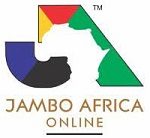By Chukwuemeka Francis Ezekiel
*** (L-R) President, African Development Bank Group, Dr. Akinwumi Adesina and EkitiState Governor, Biodun Abayomi Oyebanji, during an official meeting with the Bank’s President in Lagos ***
In the heart of Nigeria’s Ekiti State, a groundbreaking initiative is taking shape – the Ekiti Knowledge Zone (EKZ), a bold step to transform the region into a hub for digital innovation and knowledge economy.
The African Development Bank has committed $80 million in loan financing for this state-led pioneering special economic zone project, designed to foster linkages between educators, researchers, innovators, entrepreneurs, and industries, all within one location.
More than just a project, EKZ promises to be a place where ideas converge, creativity thrives, and dreams take flight. The Ekiti State Government is committing $14.8 million in counterpart funding to complement the Bank’s financing for the $94.8 million project.
In April 2023, the Federal Government of Nigeria conferred “free zone” status to the project under the Nigeria Export Processing Zones Authority (NEPZA) Act. This designation unlocks a plethora of incentives for private investors, including rent-free land, tax holidays and import/export duty waivers, fueling an environment ripe for investment and innovation.
Spanning 40 hectares of land, the EKZ aims to catalyse digital entrepreneurship, promising to generate 26,000 jobs and inject $14 million annually into the economy upon completion.
The project entails the development of world-class infrastructure, creating a 20-hectare green technology park and providing roads, electricity, water supply and wastewater treatment facilities. It will also invest in people, particularly the youth. With plans to provide information and communication technology training for over 19,000 young minds in Ekiti and neighbouring states, the EKZ is sowing seeds of future entrepreneurs and business leaders.
The EKZ seeks to attract businesses, including tech start-ups, business process outsourcing firms, fabrication and production companies, research institutes and corporate back-office operations, to locate in the Zone. An incubator program will support promising start-ups through pre-seed and seed funding to be provided by the Ekiti Innovation Fund. The project will attract anchor investors from the private sector to form a special-purpose vehicle that allows multiple investors to pool financing and manage the operations of the Zone.
But what sets the EKZ apart is not just about development but innovation—leveraging Ekiti State’s competitive edge and the presence of five higher institutions within the Ekiti Education Quadrangle. Ekiti State is home to the Federal University Oye Ekiti, Ekiti State University, Bamidele Olumilua University of Education, Science and Technology, Afe Babalola University, and the Federal Polytechnic, in addition to over 30 universities in the neighbouring States of Kwara, Kogi, Ondo and Osun that provide a vast talent pipeline.
The EKZ aligns well with the Bank’s Jobs for Youth in Africa Strategy, which seeks to promote linkages between academia and industry to nurture entrepreneurship talents and develop a skilled workforce matching employers’ needs.
Former Governor of Ekiti State and former Chairman, Nigeria Governors’ Forum, Dr. Kayode Fayemi, said, “It is exciting to see that our efforts, which began a few years ago during my tenure to establish Ekiti as the knowledge economy of Nigeria and the preferred destination for innovation, technology, artificial Intelligence, science and digital initiatives, are starting to bear fruit.”
As the EKZ takes shape, it is a testament to the power of collaboration, innovation and foresight. “It’s a beacon of hope for the youth, a testament to our commitment to fostering innovation, job creation and sustainable economic growth; it is a commitment to a better future for our State and Nigeria,” says Ekiti State Governor Biodun Oyebanji.

